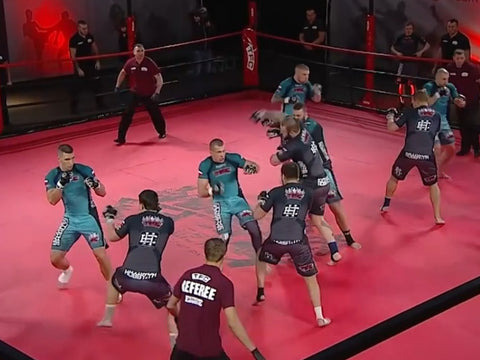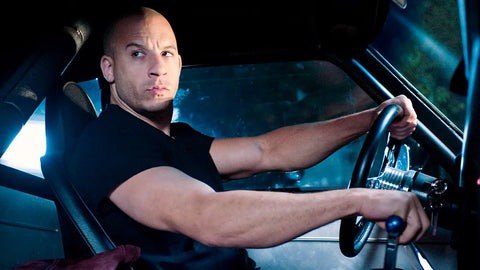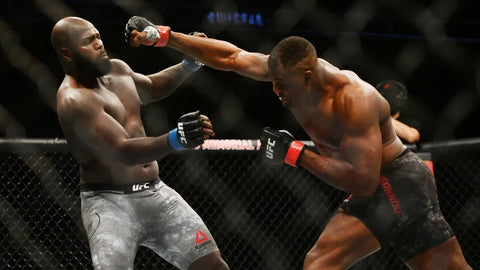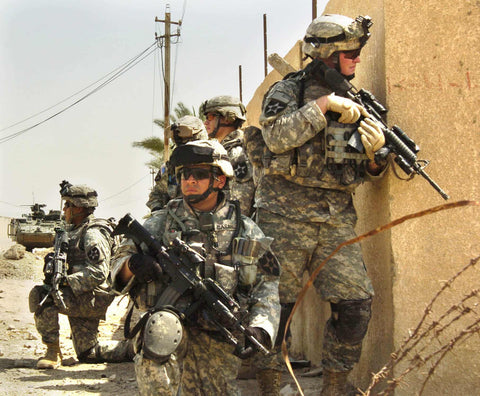
If you had 100 guys that sparred regularly, 2-3 min. rounds, every few times a week vs. 100 guys who never sparred at all, and pit them against each other, 99 out of the 100 guys who sparred would win.
For the naysayers who contest this thought experiment, allow us to ask you the following. Do you really think the guys that never went past 3 seconds of live non-compliant action would win against guys who know exactly what to expect after that first 3 seconds?
Trying to argue against this idea would only expose you as both an inexperienced practitioner and teacher.
It's Like Driving A Car Slow vs. Fast

Martial artists who never fought or sparred are like drivers who have never gone onto the highway and driven at 200km/h. You've been driving at 20km/h all your life on a local road with no other cars, how are you supposed to control your car when it's at 200km/h zipping by traffic?
You don't even know what that car / road feels like at 200km/h, much less know what that feels like when there's oncoming traffic in your way. Now add rain, snow, and foggy conditions. Then what?
Army Reserve vs. Combat Veteran

While Practical Shooting sports (IPSC / USPSA) can train a person to acquire deadly shooting skills, it is by no means a complete replacement for actual combat experience under live fire, and shouldn't be treated as such. If shooters can understand the difference, why can't martial artists understand this?
The same applies to a shooter or gunsmith who learned how to shoot static targets (who don't shoot back) at the gun range under perfect conditions vs. a military war veteran who's engaged in real-time combat in live environments.
Sure, the shooter may acquire good shooting skills, and may even shoot faster or more accurately than the combat veteran, but he has never applied these shooting skills in real life against real, moving targets who also are aiming and shooting back at him.

Bruce Lee in Enter The Dragon: "Boards Don't Hit Back."
The same thing applies to a boxer who punches a heavy bag that doesn't punch back. The bag is merely a training tool. A fight is a completely different situation.
A shooter who is shooting a dead target that doesn't shoot back is the same idea. What would happen if the target was live, and they were returning fire?
Training in a static manner with no "aliveness" means there is no live feedback or element of danger involved. This means there is no guarantee the shooter can pull off the same kind of performance in a live environment when things are not going in his favour.
The combat veteran on the other hand, has to know how to shoot, fight, save lives, defuse explosives, and take out live targets (by incapacitating or killing) in the heat of battle, drenched in sweat or smoke, enduring heat or cold, dry or wet, while under real life threat of explosives, shrapnel, and live bullets wizzing by their heads.
Who would you trust to protect you?
Don't Be Fooled By The Sales Pitch and Fall Into Lazy Habits

Returning back to our original thought experiment - outside of a Francis Ngannou-type of gargantuan KO punch from a heavyweight thrown in the first 3 seconds, the guys who have never had to go past a 3-second engagement or violent altercation would start getting lit up and fall to the floor from fear, adrenaline, and exhaustion.
Martial artists who claim they don't need to spar because they're too deadly just say this because they're lazy and don't want to train hard. Plain and simple.
It's time to stop the Martial Arts Sales Pitch(TM) (mainly prevalent in non-pressure tested arts such as Chinese Kung Fu, but can also apply to other arts where the type of sparring is unrealistic or promotes bad habits, such as in some forms of Karate and Taekwondo, and nowadays even Jiu-Jitsu) of being "Too Deadly to Spar" and start training like real martial artists.

Judo practitioners were the original "Combat Sport Athletes" back in the days of Japanese Jiu-Jitsu. Judoka stormed onto the scene and started mopping up traditional "self-defense" Jiu-Jitsu practitioners who trained "deadly" techniques, but ultimately lacked the experience and athleticism to apply them in actual combat. Judo eliminated all of these hard-to-apply, "deadly" techniques and refined the entire Jiu-Jitsu curriculum to train only moves that worked under full-contact, live-resistance settings, and thus Judo was born.
Real martial artists train technique, applications, sparring, and conditioning, and don't make excuses for not training them.
Just as the late, great Bruce Lee once said: "If you want to learn to swim jump into the water. On dry land no frame of mind is ever going to help you."
- Dynasty Team


